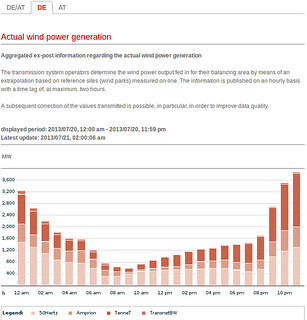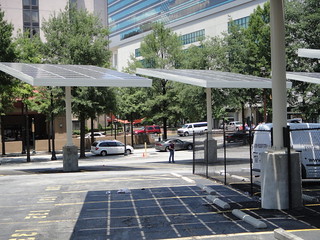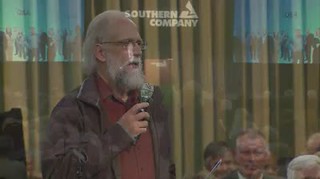“Everybody’s roof is out there,” for solar power,
so natural gas or oil pipelines are a waste of time.
 Solar prices dropping exponentially drive solar deployment up like compound interest, eventually onto everybody’s rooftops,
where eventually means in about a decade,
after which we’ll be ramping down natural gas like we’re already ramping down coal.
It’s time for Georgia Power and Southern Company and all of Georgia’s EMCs
to get on with solar and stop wasting resources on dead ends,
especially that bad idea of fifty years ago, nuclear power.
Solar prices dropping exponentially drive solar deployment up like compound interest, eventually onto everybody’s rooftops,
where eventually means in about a decade,
after which we’ll be ramping down natural gas like we’re already ramping down coal.
It’s time for Georgia Power and Southern Company and all of Georgia’s EMCs
to get on with solar and stop wasting resources on dead ends,
especially that bad idea of fifty years ago, nuclear power.
Herman K. Trabish wrote for Green Tech Media yesterday, FERC Chair Jon Wellinghoff: Solar ‘Is Going to Overtake Everything’: One of the country’s top regulators explains why he is so bullish on solar.
“Solar is growing so fast it is going to overtake everything,” Wellinghoff told GTM last week in a sideline conversation at the National Clean Energy Summit in Las Vegas.
If a single drop of water on the pitcher’s mound at Dodger Stadium is doubled every minute, Wellinghoff said, a person chained to the highest seat would be in danger of drowning in an hour.
“That’s what is happening in solar. It could double every two years,” he said.
Indeed, as GTM Research’s MJ Shiao recently pointed out, in the next 2 1/2 years the U.S. will Continue reading
















